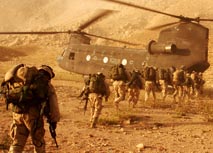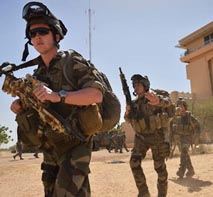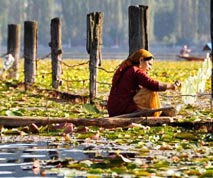
Operation El Dorado: The Road to a Resource War in Afghanistan
The roots of a war are rarely simple. In Afghanistan what at first looked like retaliation turned out to be the first preemptive resource war of the 21st century.

The roots of a war are rarely simple. In Afghanistan what at first looked like retaliation turned out to be the first preemptive resource war of the 21st century.

From Libya to Mali a typical story is forming, coupled with lucrative contracts and massive opportunities of all sorts. When private security firms speak of an emerging market in Africa, one is to safely assume that the continent is once more falling prey to growing military ambitions and unfair business conduct.

Back in the ’60s, Frances Moore Lappé realized that hunger is caused by a scarcity of democracy, not food. Then, a collective of courageous women farmers showed her how to change that.

Source: TomDispatch.com
[This piece is adapted from “Uprisings”, a chapter in Power Systems: Conversations on Global Democratic Uprisings and the New Challenges to US Empire, Noam Chomsky’s new interview book with David Barsamian (with thanks to the publisher, Metropolitan Books). The questions are Barsamian’s, the answers Chomsky’s.]
Does the United States still have the same level of control over the energy resources of the Middle East as it once had?
The major energy-producing countries are still firmly under the control of the Western-backed dictatorships. So, actually, the progress made by the Arab Spring is limited, but it’s not insignificant. The Western-controlled dictatorial system is eroding. In fact, it’s been eroding for some time. So, for example, if you go back 50 years, the energy resources – the main concern of US planners – have been mostly nationalised. There are constantly attempts to reverse that, but they have not succeeded.

Source: The Nation
American political history is usually told as the story of what political elites say and do. The twists and turns, advances and setbacks, wars, disasters and recoveries, are said to be the work of the founders, or of the presidents, or of the courts, or of the influence of a handful of great people who somehow emerge from the mass.
But this history can also be told as the story of the great protest movements that periodically well up from the bottom of American society and the impact these movements have on American institutions. There would be no founders to memorialize without the Revolutionary-era mobs who provided the foot soldiers to fight the British; no films about the quandaries of Abe Lincoln during the Civil War without the abolitionists and the thousands of runaway slaves; no Labor Day to celebrate without the sit-down strikers; no Martin Luther King to beatify without a movement of poor blacks who defied the Southern terror system.

Source: Al Jazeera
The duty of a state that claims to be democratic is to guarantee safety and freedom to its “weakest citizens”.
The Delhi gang-rape of December 2012 brought to the streets the deep and growing concern about violence against women and the demand for women’s safety. The movement is the voice of women reclaiming their right to safety and freedom, through resistance to all forms of patriarchal power and celebration of women’s peaceful power and energy.
Copyright Toward Freedom 2019